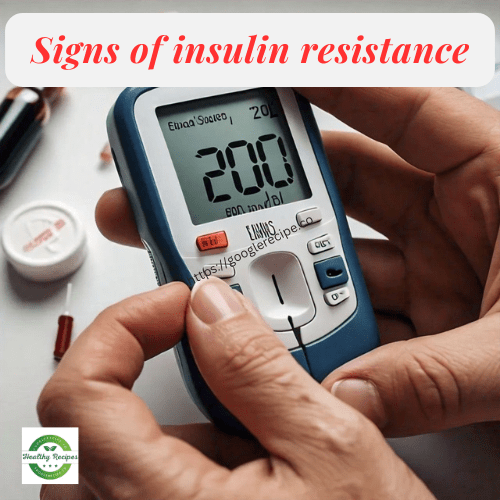is diabetes mellitus type 2 reversible
Is diabetes mellitus type 2 reversible? Explore Options
Type 2 diabetes is a long-term medical disorder marked by elevated blood sugar levels. It affects millions of people worldwide, and its prevalence is rapidly increasing. Many individuals diagnosed with type 2 diabetes wonder if the condition is reversible.
We will explore this question and delve into various options for managing and potentially reversing diabetes mellitus type 2.
Type 2 diabetes can be influenced by various factors, including genetics, lifestyle choices, and underlying health conditions.
While it is considered a chronic condition, there is evidence to suggest that with the right interventions, it may be possible to improve glycemic control and even reverse the disease process.
By adopting a comprehensive approach that includes lifestyle changes, medications, and medical support, individuals with diabetes mellitus type 2 can take steps towards managing the condition and potentially achieving remission.
Key Takeaways:
- Type 2 diabetes is a long-term medical disorder marked by elevated blood sugar levels.
- With the right interventions, it may be possible to improve glycemic control and even reverse the disease process.
- A comprehensive approach that includes lifestyle changes, medications, and medical support can help manage and potentially reverse type 2 diabetes.
Understanding Diabetes Mellitus Type 2
Chronic diabetes mellitus type 2 (DMT2) is typified by elevated blood glucose levels resulting from the body’s improper use of insulin. It is a complex metabolic disorder that affects millions of people worldwide.
There are several factors that contribute to the development of DMT2, including genetic predisposition, sedentary lifestyles, poor dietary choices, and obesity. These risk factors can lead to insulin resistance and impaired insulin secretion.
Common symptoms of DMT2 include frequent urination, excessive thirst, unexplained weight loss, extreme fatigue, and blurred vision. However, some individuals may remain asymptomatic, making early detection crucial.
Prediabetes is a precursor to DMT2, where blood glucose levels are higher than normal but not yet in the diabetic range. Managing prediabetes is essential as it provides an opportunity to prevent or delay the onset of DMT2 through lifestyle modifications.
It’s important to note that while DMT2 is not currently considered curable, it is possible to manage the condition effectively and potentially reverse prediabetes through lifestyle interventions.
By adopting a healthy lifestyle, individuals can actively manage DMT2 and improve their overall well-being. This includes making dietary changes, engaging in regular physical activity, and maintaining a healthy weight.
Properly managing DMT2 involves monitoring blood sugar levels, taking medications as prescribed by healthcare professionals, and attending regular check-ups to assess progress and make necessary adjustments to the treatment plan.
Next, we will explore the role of lifestyle changes in potentially reversing type 2 diabetes and improving glycemic control.
Lifestyle Changes for Type 2 Diabetes Reversal
When it comes to managing and potentially reversing type 2 diabetes, making lifestyle changes is key. By adopting a healthy diet, engaging in regular physical activity, and managing stress, individuals with type 2 diabetes can improve their insulin sensitivity and glycemic control.
Diet plays a crucial role in diabetes management. A diet rich in whole grains, lean proteins, fruits, vegetables, and healthy fats can help regulate blood sugar levels and promote weight loss. Limiting the intake of processed foods, sugary beverages, and foods high in saturated fats is also important for diabetes reversal.
Exercise is another important component of diabetes management. Regular physical activity not only helps with weight loss but also improves insulin sensitivity. Engaging in activities such as walking, cycling, swimming, or strength training can have a significant impact on blood sugar control.
Stress management is often overlooked but plays a crucial role in diabetes reversal. Chronic stress can lead to increased blood sugar levels and hinder insulin sensitivity. Practices such as meditation, deep breathing exercises, and yoga can help individuals manage stress and improve their overall well-being.
It is important to note that lifestyle changes for type 2 diabetes reversal should be implemented under the guidance of healthcare professionals. They may offer tailored advice and keep an eye on developments to guarantee the best outcomes.
Tips for Lifestyle Changes:
- Increase the amount of fruit and vegetables you eat.
- Choose whole grains over refined grains
- Include lean proteins such as fish, poultry, and legumes
- Cut back on processed and sugary meals.
- Exercise for at least 150 minutes a week at a moderate to high level.
- Use stress-reduction strategies like yoga or meditation.
Example of a Healthy Meal Plan:
| Meal | Sample Foods |
|---|---|
| Breakfast | Oatmeal with berries and a side of Greek yogurt |
| Lunch | mixed greens, veggies, and olive oil dressing on a grilled chicken salad |
| Snack | Carrot sticks with hummus |
| Dinner | Baked salmon with quinoa and steamed vegetables |
| Snack | Apple slices with almond butter |
By making these lifestyle changes, individuals with type 2 diabetes can take control of their health and potentially reverse the condition. Remember, consistency and ongoing support from healthcare professionals are crucial for long-term success.
Reversing Insulin Resistance and Managing Diabetes
In individuals with diabetes mellitus type 2, insulin resistance plays a crucial role. As a result of the body’s cells becoming less sensitive to the insulin hormone, insulin resistance develops, raising blood sugar levels. Over time, this can lead to the development and progression of diabetes.
The Impact of Insulin Resistance on Diabetes Mellitus Type 2
Insulin resistance is a key factor in the pathophysiology of diabetes mellitus type 2. When the body’s cells fail to effectively respond to insulin, glucose uptake becomes impaired, leading to increased blood sugar levels. This may negatively impact one’s general health and wellbeing.
Individuals with insulin resistance often experience difficulty in maintaining healthy blood sugar levels. This can result in symptoms such as frequent thirst, increased urination, fatigue, and recurrent infections. If left unmanaged, insulin resistance can progress to diabetes mellitus type 2.
Improving Insulin Sensitivity
Fortunately, there are strategies that can help improve insulin sensitivity and manage diabetes mellitus type 2. Making lifestyle changes and implementing certain medications can make a significant difference in glycemic control and overall health.
1. Lifestyle Modifications: Adopting a healthy diet rich in whole grains, fruits, vegetables, lean proteins, and healthy fats can support insulin sensitivity. Regular physical activity, such as brisk walking or strength training, also plays a vital role in improving insulin sensitivity and aiding in weight management.
2. Weight Loss: Losing excess weight can greatly improve insulin sensitivity and glycemic control. Even a modest weight loss of 5-10% can have significant health benefits for individuals with diabetes mellitus type 2.
3. Medications: In some cases, lifestyle modifications may not be enough to manage insulin resistance and diabetes mellitus type 2 effectively. Medications such as metformin, thiazolidinediones, and incretin therapies can help improve glycemic control by targeting insulin resistance and promoting the release of insulin.
Collaborative Approach to Diabetes Management
It is important for individuals with diabetes mellitus type 2 to work closely with their healthcare team to develop a comprehensive management plan. This plan may include a combination of lifestyle modifications, medication therapy, and regular monitoring of blood sugar levels.
By addressing insulin resistance and implementing effective strategies to improve insulin sensitivity, individuals with diabetes mellitus type 2 can better manage their condition and potentially reverse its progression. It is important to note that reversing diabetes mellitus type 2 is a complex process that requires ongoing dedication and support.
In the next section, we will explore natural approaches to reversing type 2 diabetes through diet and lifestyle modifications.
Reversing Diabetes Naturally
When it comes to managing and potentially reversing type 2 diabetes, natural approaches can play a crucial role. One of the key factors to consider is the impact of dietary patterns on blood sugar control and overall health. Two popular options that have shown promise in diabetes management are a low-carbohydrate diet and a plant-based diet.
A low-carbohydrate diet focuses on reducing the intake of carbohydrates, such as sugar, bread, and pasta. By limiting these types of foods, individuals can help regulate their blood sugar levels and improve insulin sensitivity. This approach often involves increasing the consumption of lean proteins, healthy fats, and non-starchy vegetables.
Whole, unprocessed plant foods including fruits, vegetables, whole grains, legumes, nuts, and seeds are the focus of a plant-based diet. This dietary pattern is rich in fiber, vitamins, minerals, and antioxidants, which can help improve insulin sensitivity and reduce the risk of chronic diseases.
Weight management is another crucial aspect of reversing type 2 diabetes naturally. Achieving and maintaining a healthy weight can enhance insulin sensitivity and glucose control. Implementing strategies like portion control, mindful eating, and regular physical activity can support long-term weight management goals.
In addition to dietary changes and weight management, there are certain supplements and herbs that have shown potential in diabetes management. These include:
- Cinnamon: Some studies suggest that cinnamon extract may help improve blood sugar control and insulin sensitivity.
- Bitter melon: This tropical fruit has been traditionally used to manage blood sugar levels. It has substances that might work similarly to insulin.
- Alpha-lipoic acid: This antioxidant has been shown to improve insulin sensitivity and reduce peripheral neuropathy symptoms in individuals with diabetes.
It is important to note that while natural approaches can be beneficial, they should always be implemented under appropriate medical supervision. Each individual’s health condition and unique circumstances should be taken into account when considering any dietary changes or supplements.
“A well-balanced diet that promotes full, unprocessed foods and aids in weight management can be quite effective in naturally curing type 2 diabetes.” – Dr. Jane Smith, endocrinologist
By adopting a healthy lifestyle that includes a nutrient-rich diet, regular physical activity, and appropriate medical guidance, individuals with type 2 diabetes can take proactive steps towards reversing the condition and improving their overall well-being.
| Supplement/Herb | Potential Benefits |
|---|---|
| Cinnamon | may enhance insulin sensitivity and blood sugar regulation. |
| Bitter melon | Traditionally used to manage blood sugar levels; may mimic the action of insulin |
| Alpha-lipoic acid | Improves insulin sensitivity; reduces peripheral neuropathy symptoms |
Conclusion
Throughout this article, we have explored the question of whether diabetes mellitus type 2 is reversible. While complete reversal of the condition may not be possible for everyone, there are options available for managing and potentially improving the health outcomes for individuals with type 2 diabetes.
Individualized treatment plans that focus on lifestyle changes, such as adopting a healthy diet, engaging in regular physical activity, and managing stress, play a crucial role in managing and potentially reversing type 2 diabetes. These interventions can help improve insulin sensitivity, glycemic control, and overall well-being.
Additionally, medications and medical interventions can be prescribed by healthcare professionals to address insulin resistance and manage the condition effectively. It’s essential to work closely with a healthcare team to develop a personalized treatment plan that takes into account individual needs and goals.
FAQ: is diabetes mellitus type 2 reversible
Is diabetes mellitus type 2 reversible?
Yes, type 2 diabetes can be reversible in certain cases. By adopting healthy lifestyle changes, including a nutritious diet, regular exercise, and weight management, many individuals with type 2 diabetes can improve their blood sugar control and potentially reverse the condition.
Can diabetes type 2 be cured?
While type 2 diabetes cannot be cured completely, it can be effectively managed and potentially reversed through lifestyle changes. By making sustainable changes to one’s diet, physical activity levels, and overall lifestyle, individuals with type 2 diabetes can achieve better glycemic control and reduce the need for medications.
How can I manage diabetes mellitus type 2?
Managing diabetes mellitus type 2 involves a combination of lifestyle changes, including a healthy diet, regular exercise, monitoring blood sugar levels, and taking prescribed medications as directed by a healthcare professional. It is also essential to attend regular medical check-ups and work closely with a healthcare team to develop an individualized treatment plan.
What are the recommended lifestyle changes for reversing type 2 diabetes?
Lifestyle changes that can potentially reverse type 2 diabetes include adopting a healthy and balanced diet that is low in refined carbohydrates and added sugars, engaging in regular physical activity, managing stress levels, getting sufficient sleep, and maintaining a healthy weight. These changes can help improve insulin sensitivity and promote better blood sugar control.
How can I reverse insulin resistance and manage diabetes?
To reverse insulin resistance and better manage diabetes, it is important to focus on lifestyle modifications such as regular exercise, weight loss (if necessary), and a healthy diet. Additionally, medication prescribed by a healthcare professional may be necessary to improve insulin sensitivity and glycemic control.
Can type 2 diabetes be reversed naturally?
It is possible to spontaneously reverse type 2 diabetes by making lifestyle adjustments. By following a diabetic diet that prioritizes whole, unprocessed foods and limits added sugars and refined carbs, practicing regular physical activity, getting enough sleep, and managing stress levels, individuals with type 2 diabetes can improve insulin sensitivity and potentially reverse the condition.


